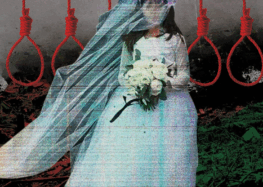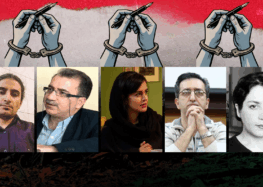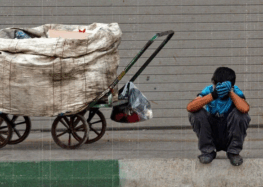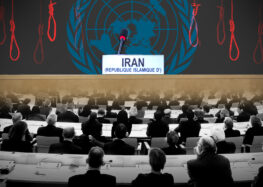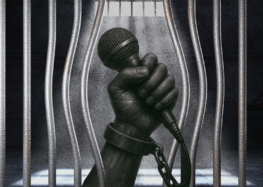Restrictions on Internet Access and Mobile Apps Grow During Rouhani Administration
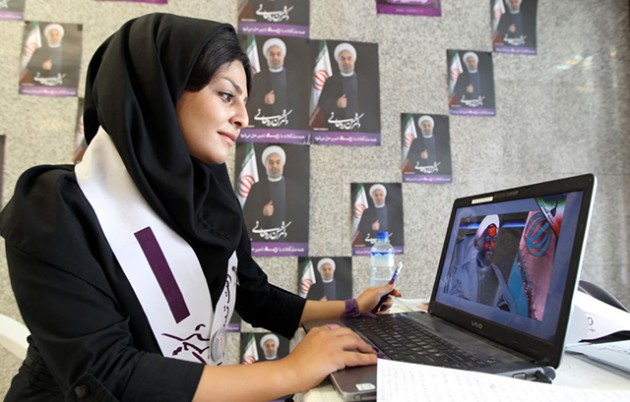
One of the most significant contributing factors to Hassan Rouhani’s victory during the June 2013 presidential election in Iran was his promise of freedom of speech, freedom of access to information, social networks and the Internet.
Iranian users are experiencing inconsistent filtering of various Internet and mobile application technologies as Iranian authorities determine their communications policies. On December 26, 2013, the Secretary of Iran’s Working Group to Determine Instances of Criminal Content on the Internet told Fars News Agency that blocking Tango, Viber, WhatsApp, and other mobile communications applications remain on the Working Group’s agenda. Three days later, Iranian users reported that Viber had been blocked in Iran; Instagram and WeChat had been blocked earlier, despite disagreement from Iran’s Ministry of Culture and Islamic Guidance. These developments have cast serious doubts among users about whether the Rouhani administration may be able to deliver on his promise of access to information.
The frequent announcements about banning different Internet services are in direct contradiction with Hassan Rouhani’s statements. After his election victory, in a September 21, 2013 interview with NBC, Rouhani said, “The viewpoint of government is that people should have access to all international information. Our monitoring and observations should be in the framework of protecting our national identity and moral values.” Rouhani added, “Social networks are important too. In my election time, I did not have a very powerful headquarters. But all my supporters, all of those who supported me—most of them, especially the youth—benefited from these networks. And right now they are using these networks and through these networks they are monitoring the functions of the government. I see all the activities of the youth in these networks, and I’m happy with this and the way they are monitoring, the working of the president and the government. But personally speaking I do not have a specific program in social networks. But my supporters are most active in these areas.”
Hassan Rouhani has explicitly defended the people’s right to access the Internet. “Bear in mind that many of the actions enforced by individuals and specific organizations against freedom in the virtual space don’t have good intentions behind them. I mean they are not particularly concerned about public morality or the threats these environments could pose against the youth; they have political goals. They are afraid of the freedom in such environments, they are after restricting news, and the restrictions are not effective, either. I wish those who support blocking would explain where they have been successful in restricting people’s access to the news. Access to which important news of recent years has become inaccessible as a result of blocking? These actions have not even been successful in making immoral websites inaccessible. Widespread blocking has no use other than erecting a higher wall of distrust between the people and the government and damaging our economy, and preventing development of positive applications on the Internet in Iran,” the President told Chelcheragh Magazine.
Hassan Rouhani has a user account on Twitter. A source with knowledge of the situation told the International Campaign for Human Rights in Iran that Rouhani’s Twitter account is managed by individuals close to the President, though his staff have so far refused to directly confirm this. Foreign Minister Javad Zarif and many other government officials use social networks to contact their target audiences, whereas ordinary citizens are banned from such access.
Several months after Rouhani’s election, Iranians are facing a completely different scene than the one Rouhani promised them. The current scene indicates policies devised by different government organizations that are sometimes transparent and at other times unclear, and shows pressure from different groups opposing the citizens’ access to information and even shows government officials’ joining these groups. Even as Iran’s highest official, Ali Khamenei, the Islamic Republic’s Supreme Leader, owns Twitter and Facebook accounts, these social networks have been repeatedly introduced as “espionage” and “soft war” tools, and no one has provided any explanations to the nation about the reasons for the officials’ membership in these networks.
The Iranian government’s policies vis-à-vis the new technologies are so inconsistent that the application WeChat is identified as a cause of divorce, even as the government attempts to develop an application called “Dialogue,” which has all the characteristics of WeChat.
One of the problems facing access to information and to the Internet is that currently several organizations are simultaneously pursuing the matter through parallel efforts. Some of the organizations active in this area are The Supreme Council of Virtual Space, Working Group to Determine Instances of Criminal Content on the Internet, the Islamic Republic of Iran’s Cyber Army, and the Islamic Republic of Iran’s Cyber Police. However, expressing opinions about social networks and threatening the authorities for blocking connections is not only limited to these organizations, but also includes high-ranking IRGC commanders, Friday Imams, and the Islamic Republic of Iran Broadcasting (IRIB). The multitude of officials expressing opinions on the topic has turned the question of Internet access into an ideological and political issue.
For example, while Ali Vaezi, Iran’s Minister of Communications and Information Technology, has stated that his organization had nothing to do with blocking WeChat, he has offered his organization’s technological abilities to block certain parts of the software to meet the requirements of the Working Group to Determine Criminal Content. For his part, Ali Jannati, Iran’s Minister of Culture and Islamic Guidance, has praised WeChat as a suitable communication tool, and has said Facebook users are individuals who conduct proper communications on the social network, suggesting that the social network should be made available and legal.
The Internet access limitations the Iranian government continues to create are also in violation of resolutions passed by the United Nations. The right to access the Internet, as a human right, was first raised by the UN’s ITU (International Telecommunication Union) in 2003. In 2012, the UN passed a resolution based upon which connectivity to the Internet is a universal right and all states must respect and guarantee online freedom of speech and Internet freedom.
Millions of Iranians continue to wait for Hassan Rouhani’s government to deliver on its promises of freedom of access to the Internet, which affects their lives and education. The International Campaign for Human Rights in Iran documented Hassan Rouhani’s campaign pledges in “Fulfilling Promises: A Human Rights Roadmap for Rouhani” in August 2013, asking President Rouhani to deliver on his promises on citizenship rights, including free access to information.


